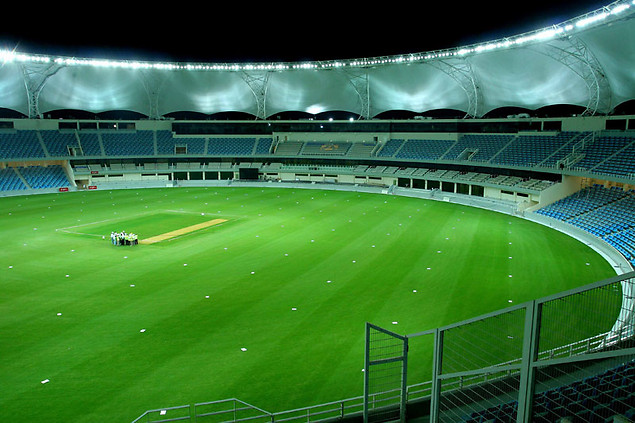In the 1970s and onwards, the history of the Ranji Trophy shows that despite having brilliant talent, many teams have not won the trophy consistently. When they did win, they played the game ruthlessly and showed no mercy to opponents on the field, and were humble and modest after winning off the field unlike today when some resorted to foul language both on and off the field. Such behavior is condemned by all who love the game. The Mumbai team, which won the maximum time, with their ‘Khadoos’ attitude, also failed to win when their approach lacked aggression and ruthlessness.
During the 1970s and 1980s, the West Indies cricket team, captained by Clive Lloyd and later Vivian Richards, dominated world cricket. They were known for their aggressive and ruthless approach, making them one of the most feared and successful teams of that era. Under Clive Lloyd’s captaincy, the West Indies team won the first two ICC Cricket World Cups in 1975 and 1979. However, they were stopped by Kapil’s Devils, who played aggressively, led fearlessly, and humbled West Indies in 1983, depriving them of a hattrick of world cup wins. The West Indian’s aggressive style of play was backed by powerful batting, express pace bowling, and exceptional fielding, making them formidable opponents for any team.
Sir Vivian Richards, one of the greatest batsmen in cricket history, took over the captaincy from Clive Lloyd in the mid-1980s. He continued the team’s aggressive style of play and led them to further success, demoralizing opposition bowlers with his fearless and dominating batting.
The West Indies’ approach on the field was often perceived as ruthless, being relentless in their pursuit of victory. Their fast bowlers, like Michael Holding, Joel Garner, and Malcolm Marshall, intimidated batsmen with their pace and aggression. The team’s fierce competitiveness and physical presence made them a tough side to face, and their era left a lasting impact on the sport, with many of the players from that time considered legends.
In the late 1980s and throughout the 1990s, the Australian cricket team, under the captaincy of Allan Border and later Steve Waugh, played aggressive and ruthless cricket, dominating the world of cricket. Allan Border, known for instilling a never-say-die attitude in the team, led them through a significant transformation, becoming a competitive force in international cricket. Steve Waugh, a determined and mentally tough cricketer, further strengthened the team’s resolve as captain, leading them to new heights of success.
The Australian team of that era had talented batsmen, disciplined bowlers, and exceptional fielding. They played with a fierce competitive spirit, showing no mercy to their opponents. Their aggressive brand of cricket often put their rivals under immense pressure, leading to multiple Test series and One-Day Internationals (ODIs) victories, as well as claiming three consecutive ICC Cricket World Cups in 1999, 2003, and 2007.
In recent years, the England cricket team has achieved remarkable success in all formats of the game, including Test cricket. Under the captaincy of Joe Root and the guidance of coach Chris Silverwood, England has developed a formidable Test side with a balanced combination of experienced players and promising talents. Their batting lineup, led by players like Joe Root, Ben Stokes, and Jos Buttler, has consistently delivered strong performances, while the bowling attack, featuring skilled pacers like James Anderson and Stuart Broad, along with spinners Jack Leach and Moeen Ali, has been potent on various pitches.
Present Coach Brendon McCullum and Ben Stokes both New Zealanders and now serving England are on the same page when it comes to an aggressive style of cricket and team selection, playing to win all and showing no mercy to opponents on the field. As a result, England has displayed great resilience and mental toughness, bouncing back from challenging situations to secure notable victories. The continuous improvement and strategic planning have made England a formidable force in Test cricket, competing well against strong opponents and achieving significant milestones on their journey to success.
Sourav Ganguly, as a captain, played a crucial role in instilling a competitive and fearless mindset in the Indian cricket team during his tenure. He encouraged players to express themselves and nurtured young talents, laying the foundation for India’s success in international cricket. MS Dhoni, who succeeded Ganguly as captain, further carried forward the team’s aggressive and competitive approach. Dhoni was known for his calm demeanor and astute decision-making on the field. Under his captaincy, India achieved several significant milestones, including winning the ICC Cricket World Cup in 2011 and the ICC Champions Trophy in 2013.
Virat Kohli also continued the team’s aggressive and results-driven approach. Known for his passion and commitment to the game, Kohli has led India to victories in various Test series and ODI tournaments. He emphasizes a strong team culture and demands excellence from his players during his tenure.
The inconsistency in performance by the Indian cricket team in recent years can be attributed to a combination of factors, one that stands out is the team style of play, which lacks the ruthlessness and aggression that earlier Indian teams had including the contributions of exceptional players and effective leadership, along with easy access in the playing eleven to the growing pool of talented individuals.
It’s essential for the team management, coaches, and players to work together to address any areas of concern and make the necessary improvements ahead of major tournaments. Every team goes through phases of highs and lows, and it’s part of the sport’s dynamics.
As cricket fans, we can hope that the team learns from their experiences and competes at their highest potential in upcoming tournaments. While maintaining a competitive edge is crucial, and I also endorse that appreciating the team during both successful and challenging times is equally important.


